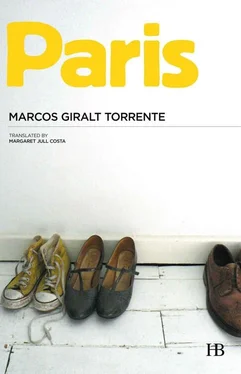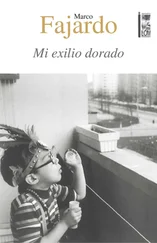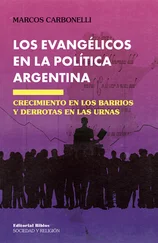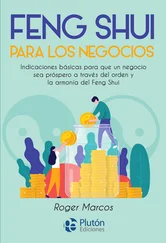Marcos Giralt Torrente - Paris
Здесь есть возможность читать онлайн «Marcos Giralt Torrente - Paris» весь текст электронной книги совершенно бесплатно (целиком полную версию без сокращений). В некоторых случаях можно слушать аудио, скачать через торрент в формате fb2 и присутствует краткое содержание. Год выпуска: 2014, ISBN: 2014, Издательство: Hispabooks, Жанр: Современная проза, на английском языке. Описание произведения, (предисловие) а так же отзывы посетителей доступны на портале библиотеки ЛибКат.
- Название:Paris
- Автор:
- Издательство:Hispabooks
- Жанр:
- Год:2014
- ISBN:9788494228452
- Рейтинг книги:5 / 5. Голосов: 1
-
Избранное:Добавить в избранное
- Отзывы:
-
Ваша оценка:
- 100
- 1
- 2
- 3
- 4
- 5
Paris: краткое содержание, описание и аннотация
Предлагаем к чтению аннотацию, описание, краткое содержание или предисловие (зависит от того, что написал сам автор книги «Paris»). Если вы не нашли необходимую информацию о книге — напишите в комментариях, мы постараемся отыскать её.
Paris — читать онлайн бесплатно полную книгу (весь текст) целиком
Ниже представлен текст книги, разбитый по страницам. Система сохранения места последней прочитанной страницы, позволяет с удобством читать онлайн бесплатно книгу «Paris», без необходимости каждый раз заново искать на чём Вы остановились. Поставьте закладку, и сможете в любой момент перейти на страницу, на которой закончили чтение.
Интервал:
Закладка:
My father’s return was like a long-awaited event we believed would transform us or change something in our lives but that, when it happened, failed to do either. Except, in this case, I hadn’t been waiting for it, and so our reunion can’t really be said to have disappointed me. The disappointment, if we can call it that, only arises now, years later, and it’s not just to do with my father’s return. If I think about myself at the time, I cannot help but feel surprised by how devoid of emotions my memory is. I have very clear images of him and my mother, I can recall fragments of what they did and those occasions when a flicker of doubt or fear appeared in their eyes, but I find it hard to see myself, I can’t remember any particular surge of joy or disappointment. If my memory is to be trusted, I accepted my father’s return home rather as I had accepted his absence, almost without feeling it.
And yet he wasn’t actually cold toward me. It’s true that he never let himself be carried away by an excess of affection, even though he was clearly thrilled to be free and his excitement occasionally broke through the cool, calm exterior he tried to maintain. But I don’t think it was coldness exactly that made him behave like that, not a deliberate, conscious coldness, at least. Rather, it was something he couldn’t control, a barrier that sprang up between him and us, preventing him from behaving naturally. He wasn’t at ease. Years later, to justify this, my mother would say that he always needed the veil of a lie and that since this was impossible with us, his few attempts to establish some complicity were rendered null, because he could never bring himself to mention his time in prison. She may have been right. It’s certainly true that there was never any unveiling, any display of trust. Given that I had seen him come out of prison, he couldn’t possibly think that I didn’t know, and yet he never made the slightest reference, not even a joking one, to his two-year absence.
During the first few days, he was hardly ever at home. He would leave the apartment while still damp from his morning shower and come back hours later, often early the next day, when my mother and I were already up and yawning over our breakfasts. He would do his best not to be seen, to sidle off down the hallway without so much as a “Good morning.” If he couldn’t avoid running into us and had no option but to say something, he would shoot us a fleeting glance, without even stopping, removing his jacket or tie as he passed, and making some supposedly comical remark—“Sorry your Dad’s such a good-for-nothing,” or “Don’t worry, I’m nearly done, one more night and it’ll all be over.” Most of the time, though, there was no such opportunity. These were strange days. Not because they were full of tension, complaints, or disappointments. They were strange in the same way as all things that defy definition and leave no trace. As strange as the fact that my father made no attempt to talk to me and that I neither complained about this nor felt hurt. Meanwhile, my mother remained utterly calm and detached from the situation, as if she wanted to give him time or feared provoking some conflict. I don’t know what happened between them in private, when they were alone in their bedroom, but in my presence, she was always kindness itself. She made no demands, never complained about anything he did, whereas I, given the oddness of the situation, turned spy. My father’s hermetic nature, his desire to draw a veil over his whole person, far from creating the inattention he sought, acted like a powerful lure, and whenever I could, I would spend my time observing him, eager to spot any gesture or comment that might help me unravel the mysteries of his newly discovered personality. It wasn’t premeditated, I wasn’t aware I was doing anything forbidden, but however spontaneous and unmethodical my techniques, it came to the same thing. No detail was irrelevant, from how he moved to his curious choice of clothes, for he made no distinction between formal and informal wear but conflated the two styles, showing a complete disregard for convention or the idea that one should keep certain outfits set aside for special occasions; he avoided suits, opting instead for sports jackets and scarves, which he combined with jeans or corduroys or wool flannel pants with the cuffs rolled up. I was ever alert, ever vigilant. I would follow him around the house like an automaton, and whenever he got a phone call, I would hang around trying to catch whatever words I could — unlike my mother, who would hand him the receiver and immediately scuttle off somewhere else.
I don’t know who made those calls, if they were people he knew from before or if they were new nocturnal acquisitions. I don’t even know if they were as frequent as I remember or just a few calls that grew in number in my child’s mind and continued to grow with the passing time, but whatever the truth of the matter, what I heard gave me my first inkling of my father’s duplicitous nature, of his need to lie. Not that I caught him telling any untruths. I simply realized that, for some reason, he had no need to pretend to the people who phoned him, or else his pretense had some other aim; he changed completely when he spoke on the phone. His usual tense, laconic way of speaking vanished, and he adopted a relaxed, often humorous tone, which was quite the opposite of how he spoke to us.
Apart from that one furtive discovery, gleaned from the odd moments when I would linger in the hallway or hang around in a doorway, I can’t remember anything else, just the look of apparent indifference in my mother’s eyes — gentle and lost in thought, as I recall — whenever we sensed or felt his unexpected presence.
That unexpectedness found its fullest expression three or four weeks after his arrival home, one Saturday or Sunday morning, on the twenty-eighth of November. I remember the date exactly because it’s my Aunt Delfina’s birthday, and my mother and I had just gotten off the phone to her and were sitting in my bedroom deciding on a date for our next trip to La Coruña. My father was in his room, supposedly sleeping, and perhaps because of that or because we unconsciously excluded him from all plans, we were talking quietly. I didn’t notice him at first. He crept up so stealthily behind my mother that I didn’t realize he had entered the room until he was actually there. After raising one finger to his lips as if asking me not to betray him, he stood stock still and silent, and when, because of some imprudent look of mine, my mother seemed about to discover his presence, he bent down and affectionately put his arms about her waist. This wasn’t the first such gesture I had seen, but it was the most spontaneous and, therefore, the most sincere, as evidenced by what happened next. As if she had been waiting a long time for this embrace, my mother did not start or turn around. She clasped the hands embracing her and, smiling, drew them more tightly around her, as if they were the buckle on some strange belt; and while he tightened his embrace and topped it off with a smacking kiss on her neck, she gently turned her head and leaned back against the body holding her close, thus prolonging the contact.
“So what are you two plotting, eh? Aren’t I included?” asked my father after a moment, as he detached himself from the embrace. “Why don’t we go and have lunch somewhere and talk about it?”
That was the first time he had shown any interest in our plans, the first time he had spoken in the plural. I’ve forgotten what my mother said in response and what else happened before we left the house to go to the restaurant where we had lunch. The only image I have is of the three of us walking down the street and of my surprise when my father at one point suggested coming with us to La Coruña. Even though his suggestion came to nothing and we never made that trip together, it has remained lodged in my memory because, from that day on, he began to coordinate his schedule with ours, and the only life he led was the one he began to share with us. Despite all her efforts to simulate normality, my mother had clearly been waiting for some such sign and could finally relax, and I, too, stopped being quite so obsessed with my father’s activities. I can’t imagine what brought about that change in him, whether it was a sincere attempt to adapt himself to us, a renunciation of his own interests in favor of some hypothetical family harmony, or, once again, merely the dictates of his own egotistical instincts just happening to coincide with what was expected of him. The fact is that the months that followed must have far outstripped even my mother’s most optimistic expectations.
Читать дальшеИнтервал:
Закладка:
Похожие книги на «Paris»
Представляем Вашему вниманию похожие книги на «Paris» списком для выбора. Мы отобрали схожую по названию и смыслу литературу в надежде предоставить читателям больше вариантов отыскать новые, интересные, ещё непрочитанные произведения.
Обсуждение, отзывы о книге «Paris» и просто собственные мнения читателей. Оставьте ваши комментарии, напишите, что Вы думаете о произведении, его смысле или главных героях. Укажите что конкретно понравилось, а что нет, и почему Вы так считаете.












